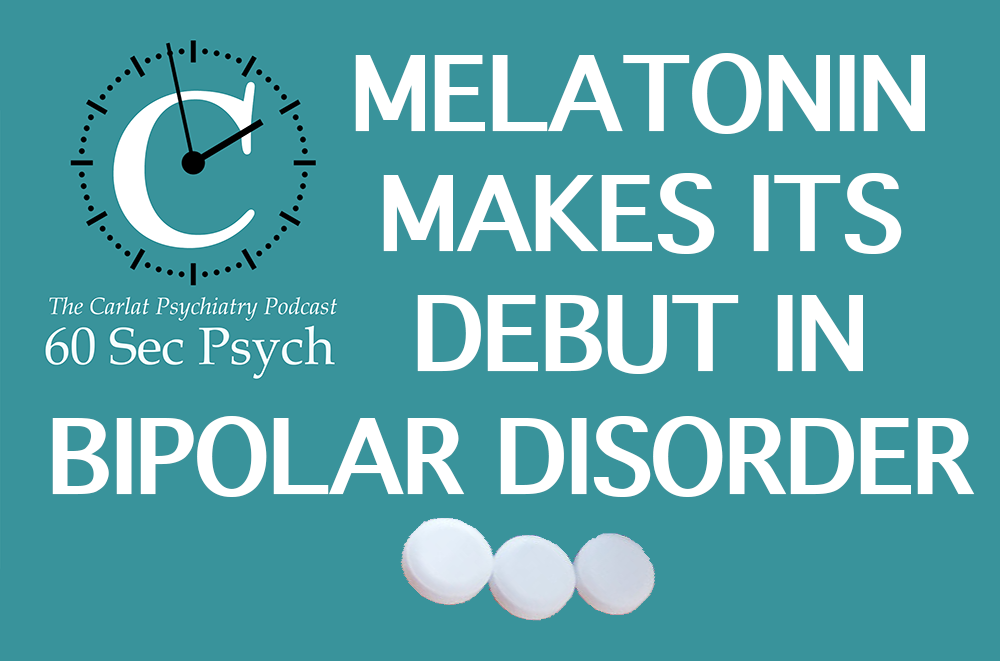Melatonin Makes its Debut in Bipolar Disorder [60 Sec Psych]
, Volume , Number ,
https://www.thecarlatreport.com/#
It’s tempting to think that melatonin will help in bipolar disorder. As we covered last month, disrupted circadian rhythms are one of the leading causes of bipolar, and blue-light blocking glasses ─ which increase the brain’s own melatonin ─ are effective in mania, and melatonin works in circadian rhythm disorders like jet lag. But in its debut randomized controlled trial in bipolar disorder, oral melatonin falls flat. [Link]
Published On: 6/30/20 Duration: 1 minute, 52 seconds Transcript: It’s tempting to think that melatonin will help in bipolar disorder. As we covered last month, disrupted circadian rhythms are one of the leading causes of bipolar, and blue-light blocking glasses ─ which increase the brain’s own melatonin ─ are effective in mania, and melatonin works in circadian rhythm disorders like jet lag. But in its debut randomized controlled trial in bipolar disorder, oral melatonin falls flat. The small 3-week study involved 41 patients with bipolar in a manic or hypomanic state. Compared to placebo, melatonin made no difference on the primary outcome measure of manic symptoms and did not even help sleep. On secondary outcomes ─ which were mainly different ways of data fishing among the bipolar rating scales ─ there was a suggestion of improvement in the melatonin group, but these would not be considered statistically significant since they were secondary measures. The study used a quality extended-release version of melatonin ─ Circadin ─ which is approved as a prescription med for sleep in the UK. Is there hope for melatonin? Maybe. The melatonin agonist ramelteon/rozerem has a small effect on bipolar depression, but behavioral strategies are currently the most effective way to realign the broken circadian system in bipolar disorder. We reviewed those in our June 1 podcast. Got Feedback? Take the podcast survey.




Leave A Comment
You must be logged in to post a comment.